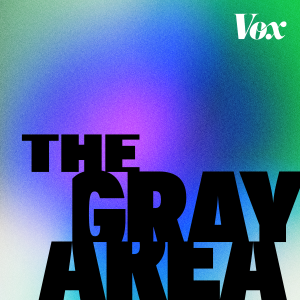
The Gray Area with Sean Illing
Society & Culture:Philosophy

Elizabeth Kolbert: We have locked in centuries of climate change
 2017-01-10
2017-01-10
Download
Right click and do "save link as"
Elizabeth Kolbert covers climate change for the New Yorker. She's the Pulitzer prize-winning author of The Sixth Extinction. And she recently wrote a paragraph I can't stop thinking about. "The problem with global warming—and the reason it continues to resist illustration, even as the streets flood and the forests die and the mussels rot on the shores—is that experience is an inadequate guide to what’s going on. The climate operates on a time delay. When carbon dioxide is added to the atmosphere, it takes decades—in a technical sense, millennia—for the earth to equilibrate. This summer’s fish kill was a product of warming that had become inevitable twenty or thirty years ago, and the warming that’s being locked in today won’t be fully felt until today’s toddlers reach middle age. In effect, we are living in the climate of the past, but already we’ve determined the climate’s future."Kolbert lives, to an unusual degree, in the planet's future. She travels to the places around the world where the climate of tomorrow is visible today. She has watched glaciers melting, and seen species dying. And she is able to convey both the science and the cost with a rare lucidity. Talking with Kolbert left me with an unnerving thought. We look back on past eras in human history and judge them morally failed. We think of the Spanish Inquisition or the Mongol hordes and believe ourselves civilized, rational, moral in a way our ancestors weren't. But if the science is right, and we do unto our descendants what the data says we are doing to them, we will be judged monsters. And it will be all the worse because we knew what we were doing and we knew how to stop, but we decided it was easier to disbelieve the science or ignore the consequences. Kolbert and I talk about the consequences, but also about what would be necessary to stabilize the climate and back off the mass extinction event that is currently underway. We discuss geoengineering, political will, the environmental cost of meat, and what individuals can and can't do. We talk about Trump's cabinet, about whether technological innovation will save us, and if pricing carbon is enough. We talk about whether hope remains a realistic emotion when it comes to our environmental future.Books:-Edward Abbe’s “Desert Solitaire”-Rachel Carson’s “Silent Spring”-David G. Haskell’s “The Forest Unseen”-Bill McKibben’s “The End of Nature”
Learn more about your ad choices. Visit megaphone.fm/adchoices
view more
Learn more about your ad choices. Visit megaphone.fm/adchoices
More Episodes
Introducing: Now & Then
 2021-07-01
2021-07-01
 2021-07-01
2021-07-01
The science of dating
 2021-06-24
2021-06-24
 2021-06-24
2021-06-24
Honoring Juneteenth with Ibram X. Kendi
 2021-06-17
2021-06-17
 2021-06-17
2021-06-17
Digital dictatorship
 2021-06-10
2021-06-10
 2021-06-10
2021-06-10
What pandemic recovery should look like
 2021-05-27
2021-05-27
 2021-05-27
2021-05-27
The gift of getting old
 2021-05-20
2021-05-20
 2021-05-20
2021-05-20
Freedom, and what it means to have a body
 2021-05-13
2021-05-13
 2021-05-13
2021-05-13
Why are we so worried about Satan?
 2021-05-06
2021-05-06
 2021-05-06
2021-05-06
How to be wrong less often
 2021-04-29
2021-04-29
 2021-04-29
2021-04-29
Who is the real George Soros?
 2021-04-01
2021-04-01
 2021-04-01
2021-04-01
Introducing Unexplainable
 2021-03-27
2021-03-27
 2021-03-27
2021-03-27
Reframing America's race problem
 2021-03-11
2021-03-11
 2021-03-11
2021-03-11
Who owns the Western?
 2021-03-04
2021-03-04
 2021-03-04
2021-03-04
012345678910111213141516171819
Create your
podcast in
minutes
- Full-featured podcast site
- Unlimited storage and bandwidth
- Comprehensive podcast stats
- Distribute to Apple Podcasts, Spotify, and more
- Make money with your podcast
It is Free
- Privacy Policy
- Cookie Policy
- Terms of Use
- Consent Preferences
- Copyright © 2015-2024 Podbean.com


